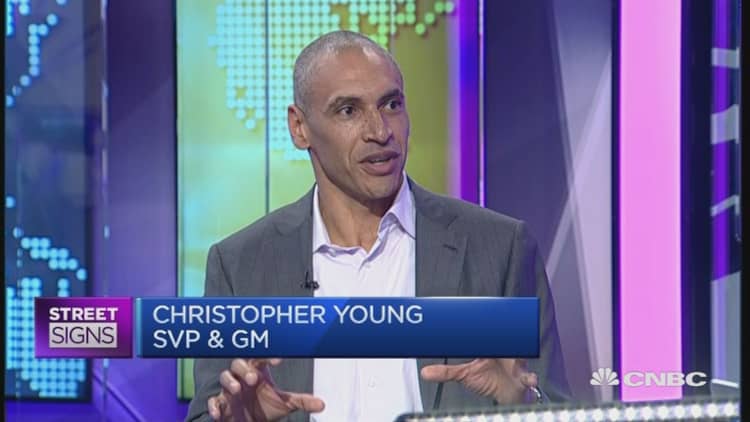
Few things are more frightening than the image of an evil genius hacking into a connected car, taking control of the steering wheel and remotely stepping on the gas.
And yet with automobiles increasingly morphing into speeding 2-ton computers, the threat is very real. In July, two hackers proved to Wired Magazine they could break into a 2014 Jeep Cherokee while it was on the highway. That led Jeep parent Chrysler to recall 1.4 million Jeep, Dodge, Ram and Chrysler brand vehicles.
Last month, the FBI released a 2,000-word public service announcement warning of "remote exploits" in motor vehicles. And IHS predicts that by 2022, 73 percent of passenger cars sold will be equipped with an internet-based entertainment portal or web-connected system for things like safety alerts.
It's suddenly a massive problem for car manufacturers, who are hustling to patch up their software that's long been absent of cyber protection. With autonomous driving on the horizon, cybersecurity will become as essential as seat belts and air bags.
An Israeli start-up founded by security industry veterans hopes it is hitting the market at the right time.
Karamba Security introduced its car security system to the public on Thursday and announced $2.5 million in funding from YL Ventures and GlenRock. Yoav Leitersdorf, a managing partner at YL, said he's been looking to invest in the market since last summer, when it became clear that the car companies were prioritizing their security strategy.
"They'd chosen to ignore the problem of cybersecurity, because it hadn't made it into the consumer mainstream," said Leitersdorf, whose firm has offices in Israel and the Bay Area. He described the Jeep incident as a "wake-up call."

Karamba's technology is designed to seal off a car's infotainment system, GPS device and roadside assistance program by making sure that no unfamiliar code is allowed to run. By blocking access to those entry points, it becomes much more difficult for an intruder to reach critical driving functions like the steering wheel, ignition and brakes.
"We make sure that only what's part of the factory settings is allowed to run," said David Barzilai, Karamba's co-founder and executive chairman. "Once we recognize foreign code, we just do not let it run."
Barzilai is one of four founders of Karamba, which has been developing the technology for the past 10 months. CEO Ami Dotan is a career entrepreneur and tech investor, while the other founders, Tal Ben David and Assaf Harel, formerly worked at security giant Check Point Software.
To get into the market, Karamba is looking to partner with the major car system manufacturers that sell directly to the automakers. While the company isn't yet disclosing potential deals, some of the names to think about include Harman, Bose, Alpine and Denso.
Karamba certainly isn't alone in attacking car security. Symantec, the longtime leader in antivirus that's now focused on the cloud and advanced threats, is working on auto security within its "internet of things" unit. Symantec released a 15-page white paper last year titled "Building Comprehensive Security into Cars," detailing the many electronics and sensors that have to be protected.
For Karamba, the key is getting the big vendors to test the technology, and then to prove that it works. There's no shortage of demand.
"Concerns about security are relatively new," Barzilai said. "But they're urgent."




